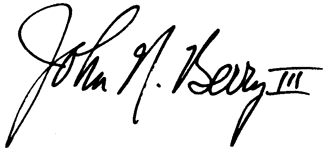Our Impossible Duty | Blatant Berry
Back in ancient times, I was the reference librarian at a small public library. We trusted all the sources in our reference collection and knew which were best for which inquiry. Library users were generally happy with the help we provided; neither they nor we were concerned that our information sources—mostly print books, indexes, directories, and a few periodicals—might be inaccurate and out-of-date, or corrupted by political beliefs, commercial aims, religious or ideological prejudices, or other interests. (Though perhaps, in retrospect, we should have been.) We rarely found inaccuracies or outright lies in those sources, so we depended on them for the valid data we needed to serve those seeking it.
neither they nor we were concerned that our information sources—mostly print books, indexes, directories, and a few periodicals—might be inaccurate and out-of-date, or corrupted by political beliefs, commercial aims, religious or ideological prejudices, or other interests. (Though perhaps, in retrospect, we should have been.) We rarely found inaccuracies or outright lies in those sources, so we depended on them for the valid data we needed to serve those seeking it.
To say "times have changed" is an understatement. The advent of a blizzard of digital resources means that we simply don’t have the people or means to evaluate sources as we once did. New information mines spring up so frequently there is no way to gauge them fully, especially since we must reassess both the specifics and the source every time we use either.
Obviously, this is an impossible task. No source can escape the pressures to make the information it provides compatible with the views of those who are pitching a political agenda, selling a product, preaching a religious belief, or building an organization.
Of course politicians and advertisements are nothing new. Even “fake news” has a long history under other names. Yet the sheer scale is massive. In addition to the growth of traditional publishing and the popularity of self-publishing, the enormity of those millions of individual tweets, posts, and contributors to the Internet makes clear that there is no way to ensure that information is authentic, accurate, or sound. Study after study demonstrates that corrupted information is now delivered as much or even more often than its well-grounded counterpart.
Our responsibilities have grown far beyond our ability to carry them out source by source. We are left with only our expertise in assisting library users to learn to apply criteria and practices to those sources. Our newest job is to help them comprehend carefully developed measures, practices, and rigorous tests to determine the quality of a source and the substance it delivers. To fulfill our job, however, we must communicate not only our methods of information evaluation but our skepticism about their effectiveness every time we aid patrons in doing research.
The ubiquity of the problem is enough to make one give up on trying to check the validity of information or its source. But that is not good enough for me. So I will continue to look for new ways to discern whether data I have provided can be trusted, at least, not to do harm or mislead anyone into trouble. That is, of course, not really good enough either. All of us who work with information must continue to seek new measures with which to ascertain the soundness of that information and the dependability of its source.
To be saddled with this apparently insurmountable task is the most frustrating, never-ending dilemma of our profession. On the other hand, to continue to do that work, and bit by bit improve our assessment of information and its sources, is the most exalted and critical work of librarians and information professionals in these current times.

John N. Berry III is Editor-at-Large, LJ.
RELATED
ALREADY A SUBSCRIBER? LOG IN
We are currently offering this content for free. Sign up now to activate your personal profile, where you can save articles for future viewing









Add Comment :-
Comment Policy:
Comment should not be empty !!!